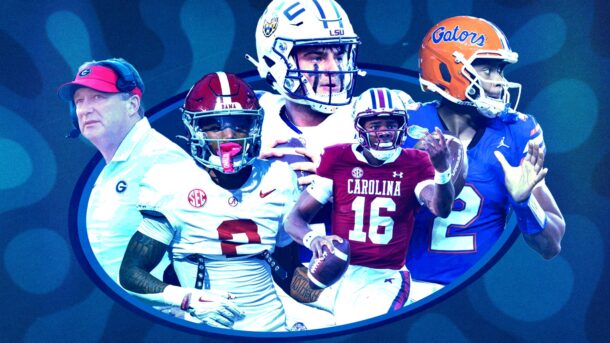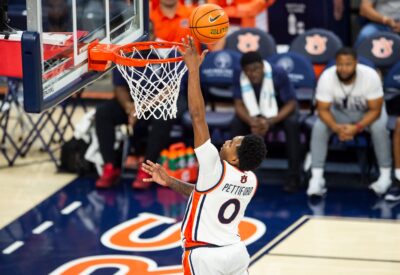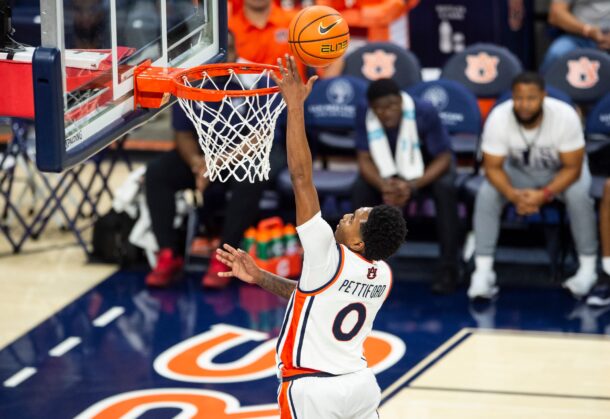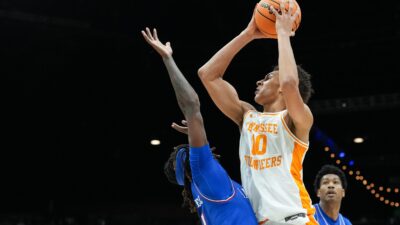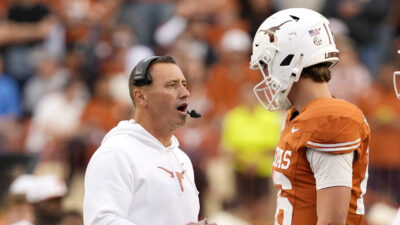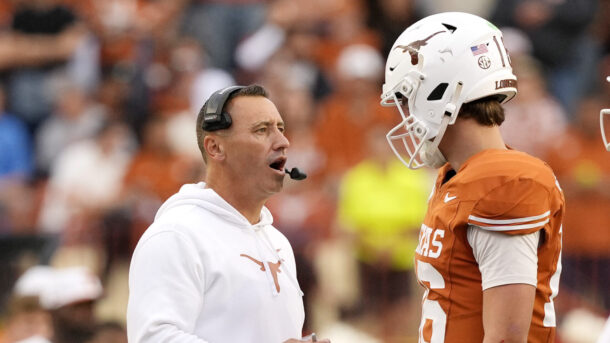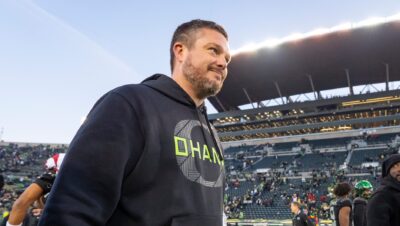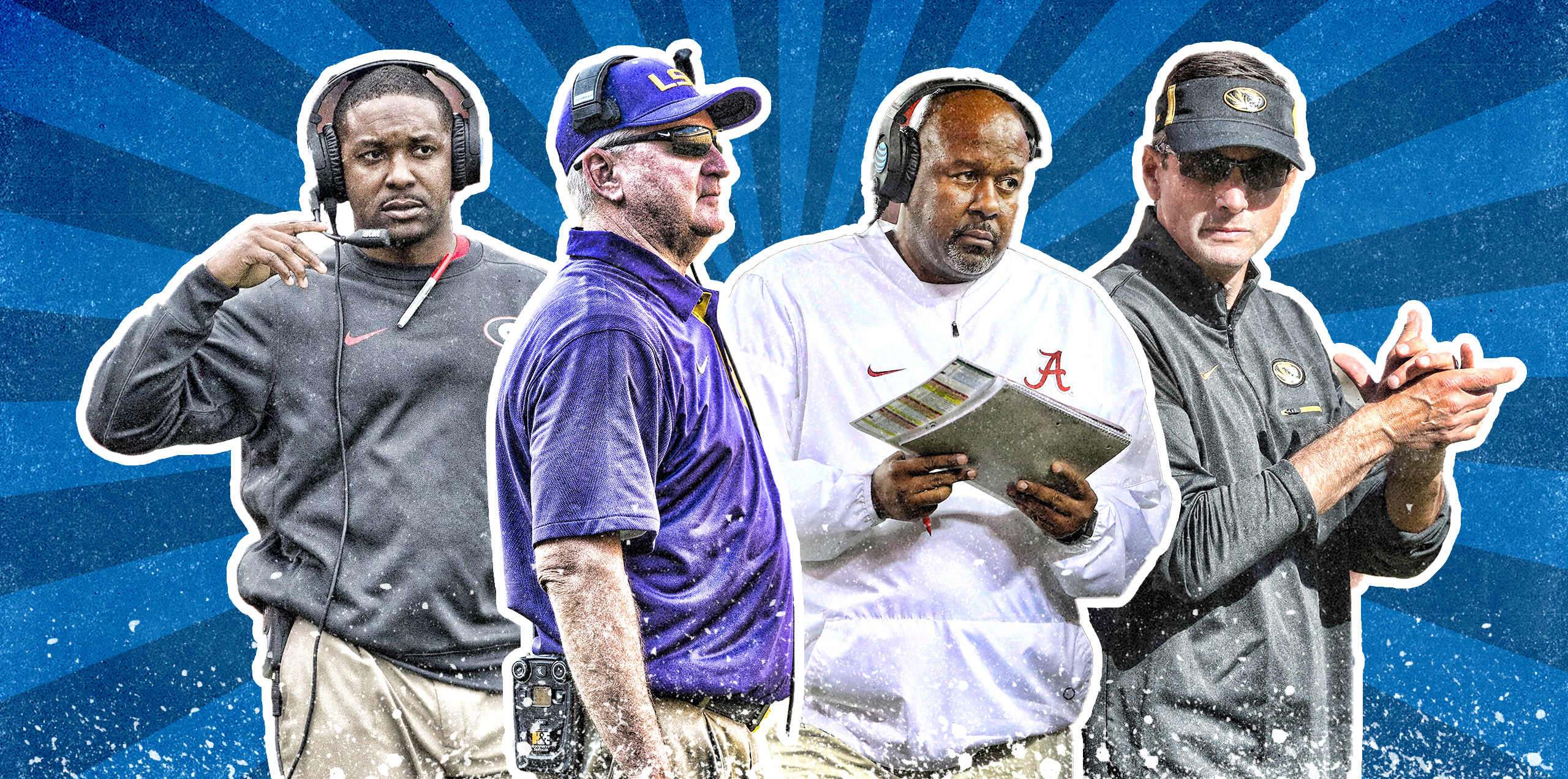
Here’s how we grade the SEC’s offensive coordinators for the job they did in the 2018 regular season.
Alabama, Mike Locksley: A
After leading Alabama to the most efficient and explosive offense in school history, Locksley can’t be given anything other than an “A” grade. Tua Tagovailoa could very well win the Heisman Trophy in his first season as a starter, Jonah Williams will likely finish out his career with some hardware before leaving for the NFL and just about every receiver the Tide put on the field looked unstoppable. Considering the talent on hand, I dock Locksley just slightly for the rushing issues and the first-half showing against Georgia in the SEC Championship Game. Outside of that, you can’t knock the job he has done as he’s off to become Maryland’s next head coach.
Arkansas, Joe Craddock: D-
The only thing keeping this grade from being an “F” is the team’s performance against Alabama. Although, when you consider that the Razorbacks scored 31 on the Tide, you have to question why they failed to surpass that number in any SEC contest outside of the Ole Miss game. Arkansas waffled all season on which quarterback to play, and outside of the tight end group (coached by Barry Lunney Jr.), running back Rakeem Boyd and offensive lineman Hjalte Froholdt, no individual players stood out.
Auburn, Chip Lindsey: D
This is a tough grade for me, as it’s no secret that Gus Malzahn hamstrings his offensive coordinators. How much of the offense was Lindsey even allowed to call? How much of this was his offense vs. Malzahn’s? Those questions will likely remain a mystery. But considering he left this job to run Kansas’ offense under Les Miles, and the previous Auburn OC left to take the same job at UConn, it’s pretty clear these guys did not enjoy working under Malzahn.
Those comments aside, Jarrett Stidham regressed this season, the offensive line never came together despite having some talented players to work with, the running game never got going and the only memorable sequence from this unit came at the end of the Texas A&M game during the Tigers’ furious comeback.
LSU, Steve Ensminger: C+
When Ed Orgeron went back to Ensminger during the previous offseason, the move was mocked by many — myself included. However, the move appeared to be a stroke of near-genius early in the season as a first-year starting quarterback, an offensive line in flux and unproven running backs resulted in an offense that was efficient and played to its strengths. After a regrettable performance at Florida, the team responded with the best game of the season against Georgia.
After that, it was pretty much downhill for Ensminger’s unit. How they scored only 19 points after LSU intercepted Nick Fitzgerald four times remains a mystery, and the game plan against Alabama is burned deep into my mind as a truly horrific display. The team sleepwalked through the Arkansas game before showing some spark against Texas A&M. Ensminger’s decision to run Joe Burrow time and again near the end of the season was also perplexing considering the depth at the position. Overall, a very average year for this unit.
Ole Miss, Phil Longo: B
For the life of me, I can’t understand why some Ole Miss fans want to move on from Longo. If he hadn’t been manufacturing points, the Rebels stood no chance thanks to the league’s worst defense. Jordan Ta’amu had a stellar season — keep in mind it was his first as the full-time starter — the receivers did their part for much of the year, and Scottie Phillips emerged as a great running back and could be considered the team’s breakout player. The only reasons Longo doesn’t deserve an “A” grade are the team’s issues in the red zone and its showing in the Egg Bowl. While Ta’amu was injured in the game, you expect more from a team in a rivalry game, and the offense didn’t show it.
Mississippi State, Luke Getsy: D
Joe Moorhead may call the plays in Starkville, but Getsy doesn’t get a pass for Mississippi State’s struggles on offense. The offensive coordinator didn’t work with Moorhead enough to get his playmakers the ball at times, often relying too heavily on QB Nick Fitzgerald to carry the unit with his legs. Running backs Aeris Williams and Kylin Hill both expressed their frustrations with the offense in different ways, and Fitzgerald never progressed as a passer. Finishing 8-4 despite having the best defense in school history and arguably the nation has to be a tough pill to swallow for Hail State fans that had high hopes for a historic season in Starkville. Each of the team’s four losses featured horrific displays of offense, something Getsy and Moorhead have to answer for and correct this offseason.
Texas A&M, Darrell Dickey: B
We all know this is Jimbo Fisher’s offense, but thanks to Dickey we saw a relatively smooth transition with many players who don’t exactly fit the offenses we’ve seen in years past in Tallahassee. Fisher was wise not to force the players he inherited into his offense and to adopt some spread concepts in College Station this season. The result was a breakout season for Kellen Mond and All-SEC seasons by Trayveon Williams and Jace Sternberger.
Florida, Billy Gonzales and John Hevesy: B-
Once again, Dan Mullen is the one pulling the strings on offense at this SEC program, but his longtime assistants Gonzales and Hevesy have a hand in game planning the offense each week. I would have to say Hevesy did a better job, as the Gators’ offensive line had some serious question marks entering the season and exceeded my expectations more weeks than not. Meanwhile, the strength of this unit appeared to be the receiving corps, and Gonzales’ unit didn’t exactly overwhelm. Give credit where credit is due, however, as these two helped Florida outscore last year’s team by the midway mark.
Georgia, Jim Chaney: B+
You have to credit Chaney for successfully replacing two of the best running backs in school history and juggling a quarterback depth chart with multiple five-star players who want to play. Sure, you can argue the team didn’t really utilize Justin Fields, but at the same time, they didn’t really need him to have success. There was pressure to get Fields more looks after the LSU game, and instead of making the panic move, the team stuck with Jake Fromm, and he delivered the best football of his young career. Chaney nearly dialed up a game plan worthy of knocking off Alabama, too, before the Bulldogs stalled in the fourth quarter in the SEC Championship Game, which doomed their chances of making the College Football Playoff.

Kentucky, Eddie Gran: B
Gran is another OC who has gotten too much heat. Following arguably the most successful regular season in program history, many Kentucky fans have called for this coach’s job. That’s pretty remarkable when you consider he was working with a first-year starting quarterback from the junior college ranks and has one game-breaking receiver on the roster. Benny Snell got his this season, but it’s not easy to game plan against elite defenses when they know how one-dimensional an offense is. Credit Gran for dialing up a game plan that utilized Terry Wilson’s strengths in a win at Florida (the Gators’ only other home loss came to Missouri) and that helped the struggling quarterback drive the field for the game-winning touchdown at Missouri. Once teams figured out Wilson couldn’t beat them from the pocket, this offense struggled, but that has more to do with the players than the coaching.
Missouri, Derek Dooley: B
The most suspect hire in the SEC this offseason deserves a ton of praise, as Dooley delivered a largely impressive debut as a first-time offensive coordinator, playcaller and quarterback coach. Mizzou featured one of the most balanced offenses in the league, and Drew Lock appeared to get better into November once he fully understood the system. While Dooley checked many boxes that you want from an offensive coordinator, his record was not flawless. The Alabama performance was rough, Lock had a three-week stretch without a touchdown pass, the unit was halted when Emanuel Hall went out and the second half against Kentucky will go down as an all-time bad half for Missouri. Those issues keep this grade from being an “A,” but Dooley overall did a nice job, all things considered.
South Carolina, Bryan McClendon: C+
This is another hire that I questioned when it was made, but it appears Will Muschamp made the right call. So why the low grade? While the Gamecocks did some impressive things on offense, it took nearly half the season to get there, and in the team’s most impressive outing (at Clemson), South Carolina lost after failing to convert on two goal-to-go situations. Had South Carolina been wide open and slinging it earlier in the season, maybe the Gamecocks would have lived up to the hype. Instead, the offense was shut down against a young Georgia defense, scored only 10 against Kentucky and didn’t do enough in the second half to beat Florida. I do credit McClendon for making adjustments against Missouri, Tennessee and Ole Miss that helped win those games.
Tennessee, Tyson Helton: D
Considering what he was paid ($1.2 million), Helton didn’t get the job done in his only season on Rocky Top. While there were some highlights — the progression of Jarrett Guarantano, the performance of Keller Chryst against Alabama, the first half against South Carolina and the Kentucky game — they simply didn’t show up enough. Horrific early starts were a constant theme, the play calling at times was either too predictable or simply awful, and no identity was ever formed for this group. If Helton hadn’t landed the Western Kentucky job, he would have not returned to Rocky Top in 2019.
Vanderbilt, Andy Ludwig: C
Though the Commodores are known as a defensive program under Derek Mason, it was the offense that led the way for their second bowl trip under their head coach. The unit kept the team in many games, and its hot streak to end the season is the reason Vanderbilt will finish the season in the Texas Bowl. While Ludwig deserves credit for that accomplishment, too often the unit either struggled to put up a fight in big games or failed to finish and cost the Commodores wins. The Florida, Kentucky and Missouri games were all winnable, but the Commodores failed to deliver in key moments. When you take into account that the offense featured a four-year starting QB and that Ludwig has been on the scene for multiple seasons, that’s not excusable.
A graduate of the University of Tennessee, Michael Wayne Bratton oversees the news coverage for Saturday Down South. Michael previously worked for FOX Sports and NFL.com
